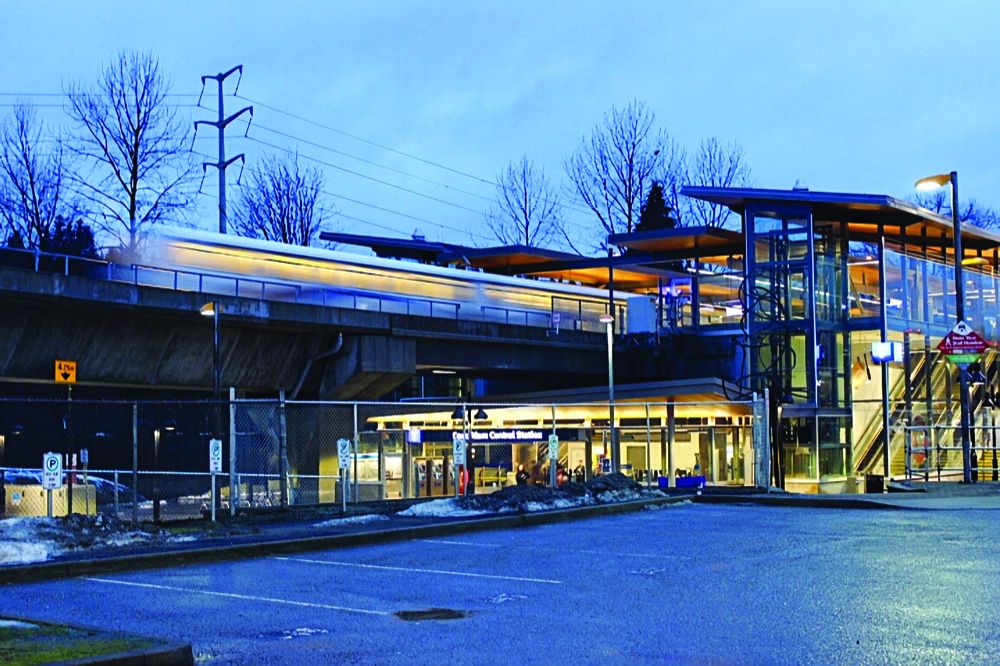
Real Estate Challenge competition heads to Canada for first time
By Aaron Guillen, Staff Reporter
Coquitlam Centre Station is among one of the busiest hubs along the newly implemented Evergreen Line, which spans across Port Moody and Coquitlam. Though the speedy service began less than two months ago, thousands of riders have found Coquitlam Centre Station to be an important connector (to the West Coast Express and as a fast track to Downtown Vancouver), and it has quickly become a cornerstone for many commutes.
Currently, the area surrounding the station is used as a Park and Ride parking lot with over 1,000 stalls for Tri-City residents. On some days, the parking lot can appear similar to a vast barren landscape. With chain link fences dividing the bus exchange and Park the Ride, many residents may have trouble accessing the SkyTrain station at first encounter. Now, a competition is being held among real estate students who may be able to change the future look of the bustling station.
Forty students from the University of British Columbia, University of Washington, and Portland State University are taking part in the 14th Annual Pacific Northwest Real Estate Challenge, a competition organized by the Commercial Real Estate Development Association (NAIOP). For the first time in Canada, students will be given the task of creating mixed-use commercial development plans, each unique and inventive in its own way to plan the potential future of the Coquitlam Centre SkyTrain Station.
“This Real Estate Challenge offers a great opportunity for students to work on a real world, challenging case, while also having a stake in the community. The newly constructed SkyTrain Evergreen Extension has great potential for the City of Coquitlam, as students will have to figure out how the transportation infrastructure can be optimized for the future tenants and residents of this 14-acre parcel, as well as the surrounding community,” said Jarvis Rouillard, president of NAIOP Vancouver, in a press release.
By opening the door to a real case study, students will be able to envision their plans onto real infrastructures. Teams have until March to present their plans in front of a panel of judges, including members of the commercial real estate industry and TransLink officials. Notably, TransLink isn’t subject to implement any of the proposed plans that are produced from the competition, but have the option to do so.
“We want this station to become a community hub that embraces the principles and philosophy of a transit oriented development,” said Guy Akester, Director of Real Estate Programs and Partnerships at TransLink, in the same press release. “The site needs to be highly walkable, offer a great mix of uses, and engage with the transportation infrastructure in a positive way. We’re excited to see what the students propose while preserving the transit functionality of the site.”
